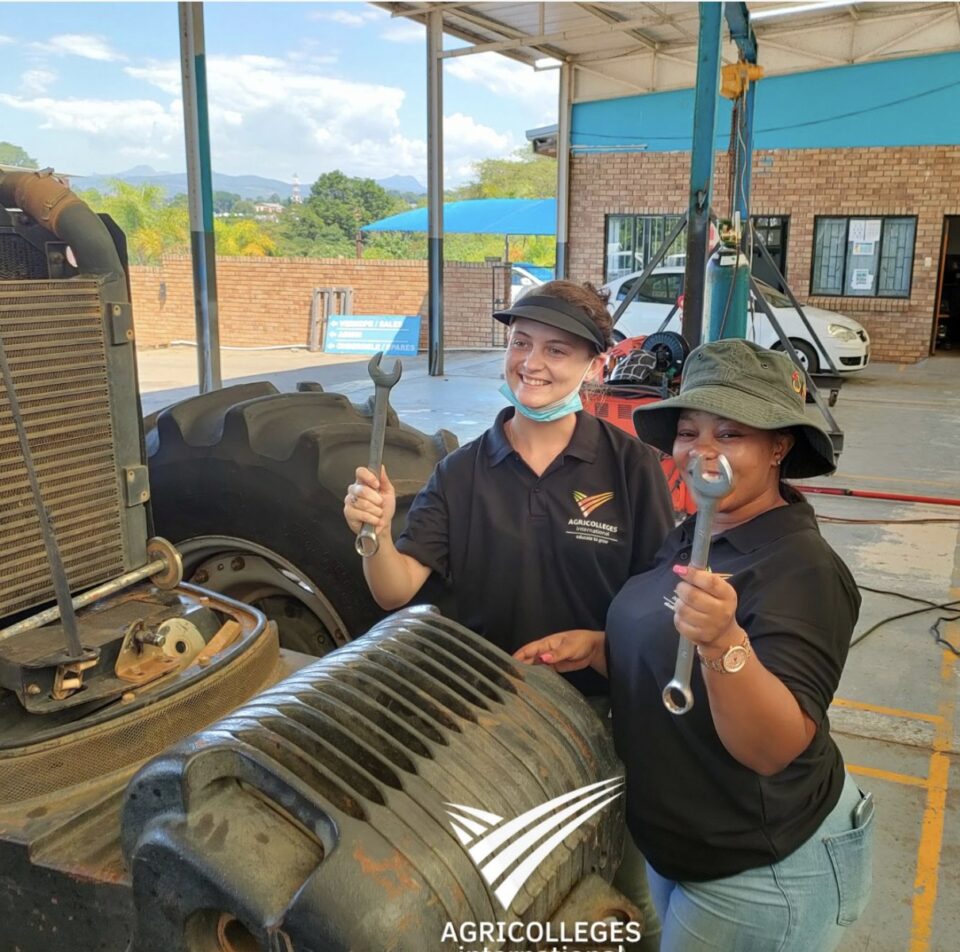New initiative provides digital access to accredited education programmes at all levels
Foskor, one of the world’s leading producers and exporters of phosphate-based fertilisers, is launching a new initiative to support agricultural education in South Africa.
The programme, called ‘Creating Champions in the Phalaborwa Community’, welcomed its first cohort of students this year. Drawing applicants from eight historically disadvantaged communities in the areas surrounding Foskor’s mining operations, it will form part of the broader Agricultural Community Champions Programme, which has been designed to empower residents of the Ba-Phalaborwa municipal area through agricultural education and community development.
“As a vital provider to the agricultural community, we understand how important it is to facilitate access to accredited agricultural education programmes,” says Julian Pallium, President and CEO of Foskor. “This programme will offer a range of courses not only for individuals who wish to build a career in commercial agriculture but also for small-scale farmers, entrepreneurs and community garden collectives.”
The initiative is aligned to the top two United Nations Sustainable Development Goals (SDGs): putting an end to poverty and eliminating hunger.
“We all know the adage that if you give a person a fish, they can eat for a day, but if you teach them how to fish, they can eat for life,” says Pallium. “What this means in practice is that, as a global community, we need to work towards achieving food security and better nutritional value for everyone as a matter of priority. And, in order to do that, we need to promote sustainable agriculture at all levels of production. This requires many integrated actions, not least in education. We need to equip the agricultural sector as a whole with the skills required to create food security, literally from the ground up.”
Food security in South Africa
While South Africa is relatively food secure as a country, the National Food and Nutrition Security Survey, released on 9 October 2024, highlights the fact that, at household level, many people struggle with access to food. According to Statistics SA (Stats SA), around 80% of households report having adequate access to food, which places South Africa around the midway point on the Global Food Security Index. However, 15% of households (2.6 million) report having inadequate access to food and a further 6% (1.1 million) report having severely inadequate access to food.
New statistics from the General Household Survey 2025 reveal that 63.5% of households experience food insecurity, translating to over 20million people facing hunger daily. Among these, 19.7% face moderate to severe food insecurity, and 8.0% face severe food insecurity. Additionally 29% of children under five are affected by stunting, a form of chronic malnutrition.
“The reality is that too many South African’s still go to bed hungry every night,” says Pallium. “The programme is about changing that reality by equipping people with the knowledge, skills, and tools to grow food, build businesses, and create sustainable livelihoods. Education is the most powerful lever we can pull to address food insecurity in a lasting way.”
Foskor understands that this is a challenge to be met at all tiers of the food production system and therefore focuses on three critical interventions: supporting agricultural education, ensuring that the supply of fertiliser is reliable, and ensuring that fertiliser remains an affordable input into the agricultural production system so that increases in food prices can be minimised.
A partnership in education
In order to deliver on the first of these, the company has partnered with AgriColleges International, a modern e-learning institution that provides industry-relevant and accredited agricultural education in countries around the world.
Providing access via students’ smartphones, tablets or PCs, the organisation offers AgriSETA-accredited courses in everything from an introduction to agribusiness to the cultivation of individual crops, pig farming, aquaponics and chicken farming. It also offers national certificates (NFQ4 level) in General Agriculture, Plant Production, Animal Production and Cannabis and Hemp Production.
Interested individuals aged 18 and older and with a Grade 10 qualification were invited to apply for the inaugural ‘Creating Champions in the Phalaborwa Community’ programme, which draws on all of these offerings. For the 2025 intake, a total of 453 applications were received and, from these, 62 candidates (41 women and 21 men) were shortlisted for interviews. The final selection of 34 participants began the programme in 2025.
In addition to the agricultural training, they benefit from life skills, financial literacy and agribusiness courses, which focus specifically on empowering students to foster community development. These essential skills will not only enhance their employability but will also promote sustainable farming practices and drive local economic growth. As part of the program participants receive a monthly stipend.
“At Foskor, we believe that if you feed the soil, you feed the nation,” says Pallium. “Equally, we believe if you feed eager minds, you will feed the nation. We’re very proud to be undertaking this initiative and look forward to releasing the first cohort.”


